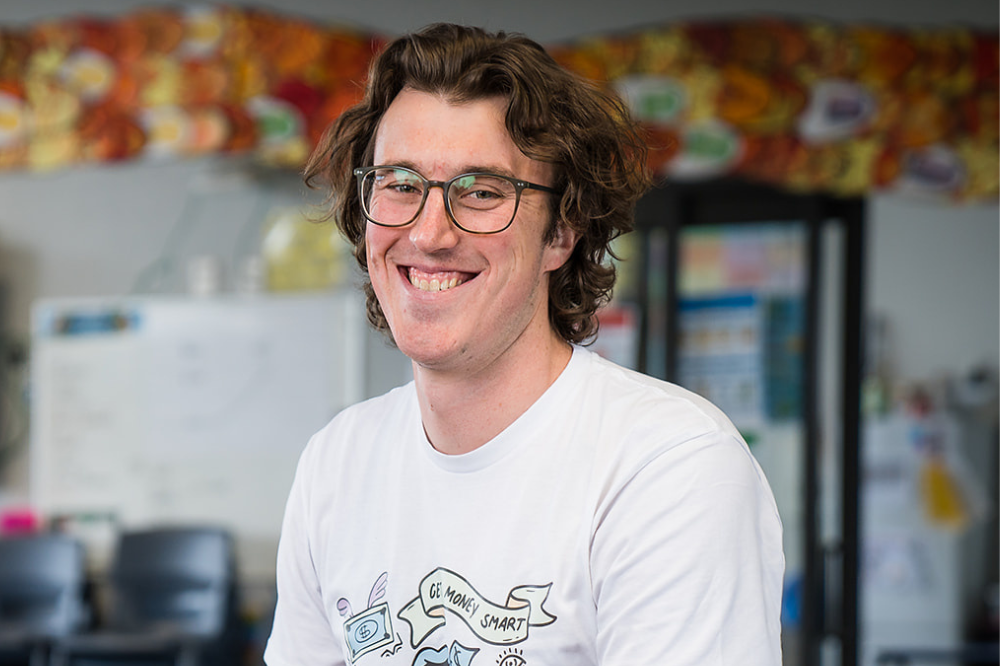
When Kendall Flutey saw how her little brother was learning about money at school, she knew more work had to be done. A lot more work.
In a world of increasing financial complexity, she wanted better for the next generation than a paper-based program that only covered basic calculations. What’s more, she wanted financial education to be fun and engaging, and not the boring and dull subject many young people find it to be.
A 2020 survey of more than 1,600 children in the UK found only a quarter (27%) enjoy learning about money at school. According to the study, the top three things that children believe would make learning about money more fun are jokes and funny stuff, games, and using “real” money in “real” situations.
To address this, Flutey and three other like-minded colleagues launched Banqer, a simulated online banking program for schools that provides “a hands on environment for kids to get curious, creative, and ultimately, confident with money.”
Since its inception in 2014, the company has evolved into a sophisticated simulated virtual economy for primary and secondary schools, helping more than 300,000 students take charge of their financial future.
Below, The Educator speaks to Banqer’s Co-CEO, Simon Brown, about the success the program is having, and the professional development opportunities it offers for educators.
TE: With many young people struggling to achieve greater financial literacy, principals will be interested in knowing how effective this program is. What kind of evidence is Banqer backed by?
Firstly, we need to know if financial education is worth prioritising in the school curriculum. This case has been proven many times, but a recent Australian academic research report recommended, “Given the importance of financial literacy for student wellbeing, financial literacy education should be elevated within high schools. Ideally, this is within a standalone program”. So then, is Banqer right for the job? Research by D&G consulting commissioned last year proves that Banqer High increases student financial confidence, and our Net Promoter Score was +55, significantly beating the Australian secondary education industry average of +10.
TE: Professional development for teachers is critical in ensuring the success of any educational program. How does Banqer support teachers in their understanding and delivery of financial literacy lessons, and are there ongoing resources or training available to further develop their skills?
To set teachers up for success, our team provides onboarding and PD before schools make a start and offer personalised support throughout the year. While the Banqer High platform is super intuitive, the difference between average or brilliant use is how Banqer is applied in the classroom context. To support teachers here we crowdsource examples of innovative use across Australasia and inspire our community in regular newsletters. And, of course, our team is on call every school day to answer any questions or troubleshoot any concerns.
TE: The website mentions the use of Banqer ‘Gems’ to incentivise classroom activities. How does Banqer balance this system to avoid fostering a purely transactional mindset in students and encourage more intrinsic motivations for learning?
While there is a baked-in classroom incentivisation system in Banqer High, we’ve found students are more interested in growing their achievements in the platform (savings, property, careers or net worth). Student feedback suggests they are incredibly intrinsically motivated to understand and engage in the real world, particularly around financial matters. Our young people are living through a cost-of-living crisis, so are looking for tools to navigate this. Banqer High empowers them to make decisions for themselves around taking on debt, making investments or managing risk. And feeling empowered is one of the most effective motivations for continued learning.
TE: Engagement in learning is clearly a key factor for student success. Apart from simulating real-life events, are there other methods that Banqer employs to keep students invested in the platform, particularly for those who may initially show less interest in financial topics?
One of the most popular topics is ‘Careers’ partly because students can only progress via regular ‘check-ins’ each school day. The more they progress, the more earning potential they have. With this, students then have more options to grow net wealth across the platform with savings or investments. The other reason students love ‘Careers’ is it introduces them to real-world employment and workplace concepts via the check-in quizzes. These could be specific to their chosen Banqer career (accounting, veterinary or digital design, to name a few) or information all employees should know, including basic employment law or workplace conduct.


